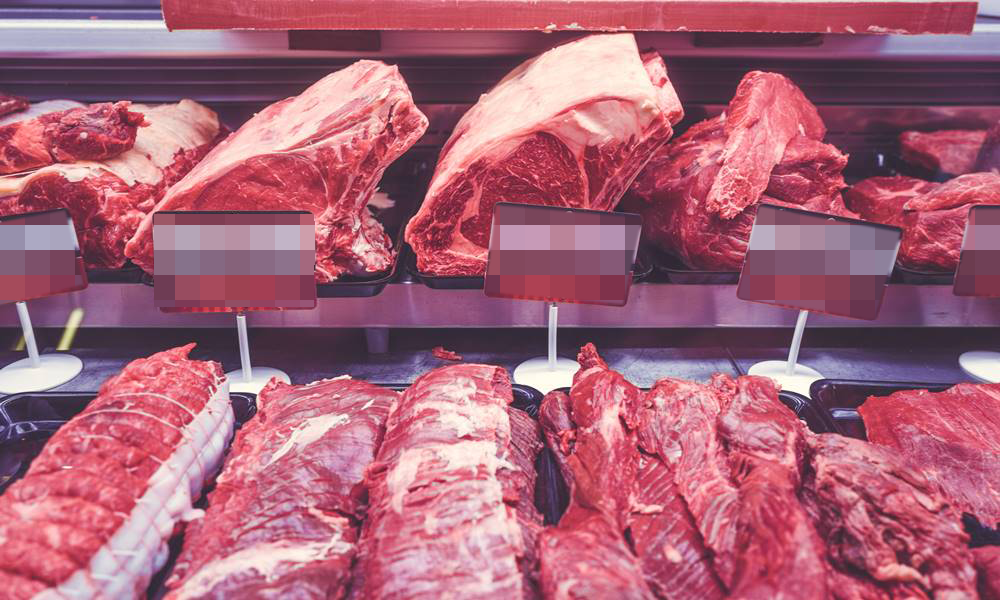For most Malay Muslims - and Muslims in many countries really - pork is the ultimate no-no, regardless of how pious you are or even if you partake in other no-nos like alcohol.
It is because, from a young age, it has been drummed into us that pork is the filthiest of filth.
It is such that when it comes to dining, the idea of eating at a household or establishment where pork is cooked would cause such Muslims to recoil in fear, even if pork was not on the menu for a particular meal.
So when I fell in love with a non-Muslim Chinese woman - who I've now been married to for over a year - such thoughts of course reared its head when the time came for me to have dinner at her family home.
In Malaysia, the understanding that most Muslims have is that anything that comes into contact with a pig or its meat, must be cleaned once with muddy water and six times with clean water for such items to be purified for use by Muslims.
This act, known as sertu - or its more popular misnomer samak - is the same that is performed when something is touched by wet parts of a dog.

Most of us have heard how in East Malaysia, in households where there are Christians, Muslims, and those of other faiths, the problem is easily solved by having two sets of kitchenware and cutlery, with one that is only used for pork.
But the thought of imposing that on my wife's family, especially when we were just dating, wrecked me with guilt at the idea of being burdensome to her parents.
Then I remembered hearing once that it's okay for Muslims to eat at non-Muslim houses and use their utensils.
So I searched online for answers, and lo and behold, there was one.
First, we must understand that the act of sertu is based on a hadith where the Prophet Muhammad instructed Muslims to clean a bowl licked by a dog by washing it seven times, with the first time being a mixture of water and earth.
From this, some Muslim jurists and scholars surmised that since pigs are more unclean than dogs (dogs can be reared for hunting and guarding, for example), therefore things that come into contact with pigs or pork must also be sertu to be ritually purified.
This is the main belief of the Syafie school (mazhab) of Sunni Islam, the main school of thought adhered to by Muslims in Malaysia.
However, Perlis mufti Mohd Asri Zainul Abidin pointed out that there was a differing opinion held by Imam Al-Nawawi, who is a major jurist and guiding figure in the Syafie school.
Asri highlighted that Al-Nawawi's position - and that of many other scholars in other mazhab - is that sertu was unnecessary when it came to pigs.
Instead, it is sufficient for a plate, for example, to just be clean and have no stains left behind from pork.

The argument for this is that the hadith for sertu was specific to dogs.
Meanwhile, allowances made for dogs, such as keeping them for security, or for hunting - wherein it is permissible to eat wild game caught by dogs - are not extended to pigs.
Al-Nawawi's position is actually a valid second position in the Syafie mazhab, and thanks to Asri and others who preached about this, any fear I had of eating home-cooked meals by my in-laws evaporated.
As is in many Malaysian tales, food brings us together, and eating mummy's (my mother-in-law's) cooking with gusto has been a major part of strengthening our bond and love for each other.
While Al-Nawawi's position on sertu is not part of his 40 hadith compilation that is now the subject of controversy, my experience has helped reinforce in me that in the pursuit of knowledge, there is goodness and kindness and love to be found. - Mkini
ZIKRI KAMARULZAMAN is a member of the Malaysiakini team.




No comments:
Post a Comment
Note: Only a member of this blog may post a comment.